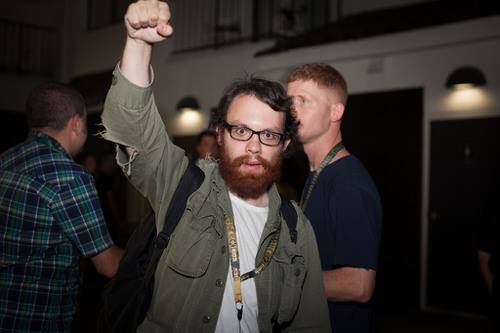
Today a federal appeals court reversed and vacated the conviction of Andrew “Weev” Auernheimer.
Weev received a 41-month prison sentence in March 2013 after being convicted of violating the Computer Fraud and Abuse Act and committing identity fraud for his actions in 2010 when he exposed a security hole at AT&T by hacking into the company’s public server and releasing thousands of iPad customer emails to Gawker.
See also: Hacker Crackdown: Blame AT&T’s Crappy Security, Not Weev
Weev’s trial was seen as a landmark case for the vaguely worded CFAA, a 1986 law that defines “unauthorized access” to computers so broadly that prosecutors can use the law to charge relatively harmless acts as federal felonies.
The Third Circuit Court of Appeals in New Jersey chose not to address issues related to the CFAA raised in Auernheimer’s appeal, and instead vacated his conviction on the simplest possible grounds—that he was tried in the wrong court:
Although this appeal raises a number of complex and novel issues that are of great public importance in our increasingly interconnected age, we find it necessary to reach only one that has been fundamental since our country’s founding: venue.
It’s not immediately clear whether federal prosecutors will pursue charges in another state, or if Fifth Amendment protections against “double jeopardy”—i.e., being tried twice for the same crime—would prevent that.
Lead image courtesy of pinguino k on Flickr

















